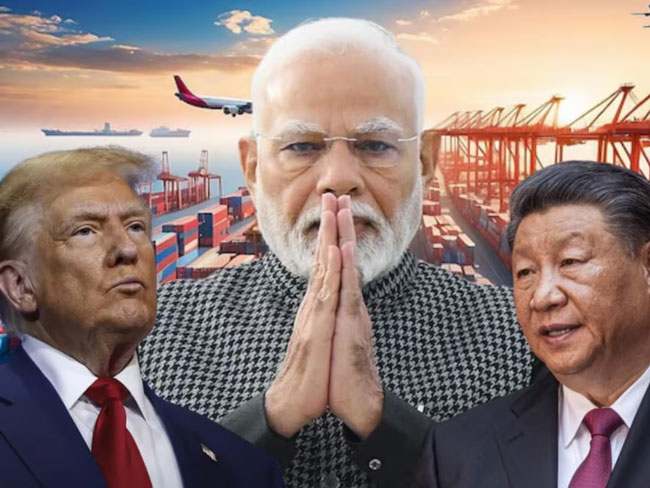Desk: During his US visit, Prime Minister Narendra Modi met with President Donald Trump, where they discussed various key issues. In a significant development, Trump offered India the advanced F-35 fighter jets. This meeting has reportedly unsettled China, prompting Beijing to issue a cautious statement, saying that any bilateral cooperation between the two nations should not harm a third party.
For a long time, China has been on Trump’s radar, and India, too, has had its share of tensions with Beijing. Reacting to the Modi-Trump meeting, China’s Foreign Ministry spokesperson Guo Jiakun emphasized that US-India relations should not be centered around China and should not negatively impact the interests of any third country.
Guo further stated that the Asia-Pacific region should be a hub for peaceful development rather than geopolitical rivalry. The discussion between Modi and Trump focused on strengthening defense cooperation and reaffirming their commitment to a free, open, peaceful, and prosperous Indo-Pacific region.
In the joint statement released after the meeting, both leaders agreed to enhance US-India defense relations and launched a new initiative called the ‘US-India Compact’ to accelerate military partnerships, trade, and technological advancements.
Additionally, both leaders reiterated the importance of their strategic partnership in ensuring stability in the Indo-Pacific and strengthening the QUAD alliance (which includes the US, India, Japan, and Australia). China has long viewed QUAD with suspicion, believing its purpose is to counter its growing influence in the region.
As the US and India strengthen their defense and diplomatic ties, China’s wary response signals growing tensions in the Indo-Pacific geopolitical landscape.




